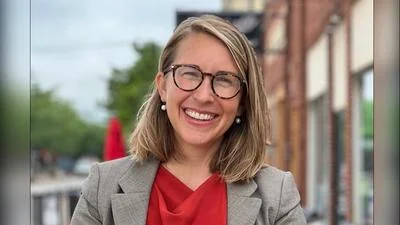The HCV program is a federally funded program administered by MSHDA that provides rental assistance to help eligible, low-income households pay their rent. | MSHDA/Facebook
The HCV program is a federally funded program administered by MSHDA that provides rental assistance to help eligible, low-income households pay their rent. | MSHDA/Facebook
The 2022-2023 Public Housing Agency (PHA) yearly fiscal plan, which details appropriate approaches for the Michigan State Housing Development Authority's (MSHDA) Housing Choice Voucher (HCV) program, recently received approval.
"The Housing Choice Voucher program serves a critical need in helping some of our state's most at-risk residents gain access to safe, affordable housing," Lisa Kemmis, MSHDA director of Rental Assistance and Homeless Solutions, said in a recent press release on Michigan.gov. "At MSHDA, we know housing stability can have a ripple effect that positively impacts every part of a person's life, and the Housing Choice Voucher program often serves as a lifeline to help individuals and families get back on their feet."
The HCV program is a federally funded program administered by MSHDA that provides rental assistance to people the PHA helps, the release said.
Approval for the yearly PHA plan happened at the March board meeting, with the initiative expected to aid approximately 28,000 economically challenged and homeless people via funds for renting apartments or private homes, the release said. With the approval, the program is on track with a five-year PHA master plan that was adopted on Jan. 1, 2019.
In addition, Michigan Assistant Attorney General Ron Farnum, who is retiring, was recognized by the board for his tenure that enhanced the lives of Michiganders seeking housing permanency and affordability.
"I take a lot of pride in the fact that over the years, in a small way, I helped create thousands of housing units for people who otherwise wouldn't have had a decent place to live," Farnum said.
The board also approved $36.6 million in grants for HOM Flats at Maynard, located in Grand Rapids, for the development of 240 units that will receive a low-income housing tax credit, the release said.




 Alerts Sign-up
Alerts Sign-up